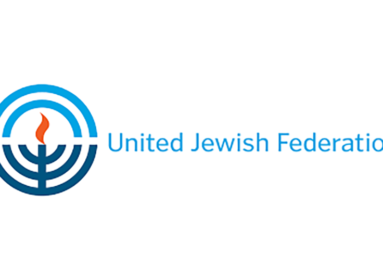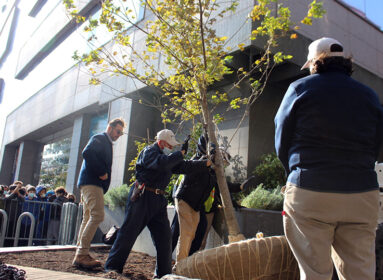
By Rabbi Tzvi Hersh Weinreb
I have a clear image of my first memory. I was standing outside, looking up at my father, may he rest in peace, surrounded by a small crowd of other men. Everyone was looking at the moon. This may have been my first experience, at age three or four, of kiddush levana, the monthly ceremony during which the congregation exits the synagogue and acknowledges the first appearance of the new moon.
I have another memory of the religious significance of this ceremony. I remember being told that the Hebrew word for “month” is chodesh and the Hebrew word for “new” is chadash. It was then that I learned of the significance of the new moon, which commences a new month, and became aware for the first time that the Jewish people follow the lunar, not solar, calendar.
When it is the last Sabbath before the new moon of the month of Nisan — the month of Passover and the beginning of the new calendar year — in addition to reading Tazria, we also read an additional portion from Exodus 12:1-20, known as Parshat HaChodesh. According to Rashi, these verses are the true beginning of the Torah.
The theme of newness and the constant potentiality for renewal is the central theme on this Shabbat. It is also the central theme in the Jewish calendar, and one might say, in Jewish tradition in general. The symbolism of the moon constantly renewing itself is coupled with the symbolism of springtime and nature’s renewal.
We herald the approaching holiday of Passover, but not as a holiday of freedom and redemption. Not just yet. We recognize that Passover is the festival of springtime (chag ha’aviv). Passover has a myriad of symbolic meanings, one of which is the perennial opportunity for personal and national rejuvenation.
The new moon is a symbol for renewal. It is a time for each of us personally to begin again, to forget past mistakes, to ‘turn over a new leaf.’ It is also a time for us to renew and recharge our relationship with others. It is a time to begin a new slate, to forgive each other, and to appreciate each other anew. Hence, we greet at least three friends, even old friends, with a ‘Shalom aleikhem,’ as if they were newcomers in our lives.
And so, the supplemental reading teaches us about newness, and about, to borrow Lincoln’s famous phrase, “a new nation, conceived in liberty.” Is there any connection between the supplemental Parashat HaChodesh and the main Torah portion of Tazria?
I would say so, for the parsha begins, “Speak to the Children of Israel, saying, ‘If a woman conceives and bears a male child, she shall be unclean seven days…and on the eighth day, the flesh of his foreskin shall be circumcised’” (Lev. 12:1-3). The opening theme is also one of a new beginning, of the birth of a new baby. It is a time for the celebration of the entry of a new member into the Jewish people. Hence, there is surely a connection between Tazria and Parshat HaChodesh. They both adumbrate the centrality of the new in our tradition.
The lesson of our parsha is of light. It is an occasion to contemplate all that is new in our natural and interpersonal environments, especially in the spring season. It is an opportunity to seize the moment by taking advantage of the constantly available potential for renewal of ourselves and of our friendships and relationships.
Is this just a Jewish message? Of course not. It is a message for all of humanity. And it is so well expressed by the famous adventurer and explorer of the sea, Jacques-Yves Cousteau, in his book The Silent World, when he writes: ”Sometimes we are lucky enough to know that our lives have been changed, to discard the old, embrace the new, and run headlong down an immutable course. It happened to me at Le Mourillon on that summer’s day, when my eyes were opened to the sea.”
In reading Tazria, our eyes open to a different kind of sea. May we embrace the new and run, headlong and happy, down a different and better course.
Rabbi Tzvi Hersh Weinreb is the executive vice president emeritus of the Orthodox Union.








 Southern New England Jewish Ledger
Southern New England Jewish Ledger














